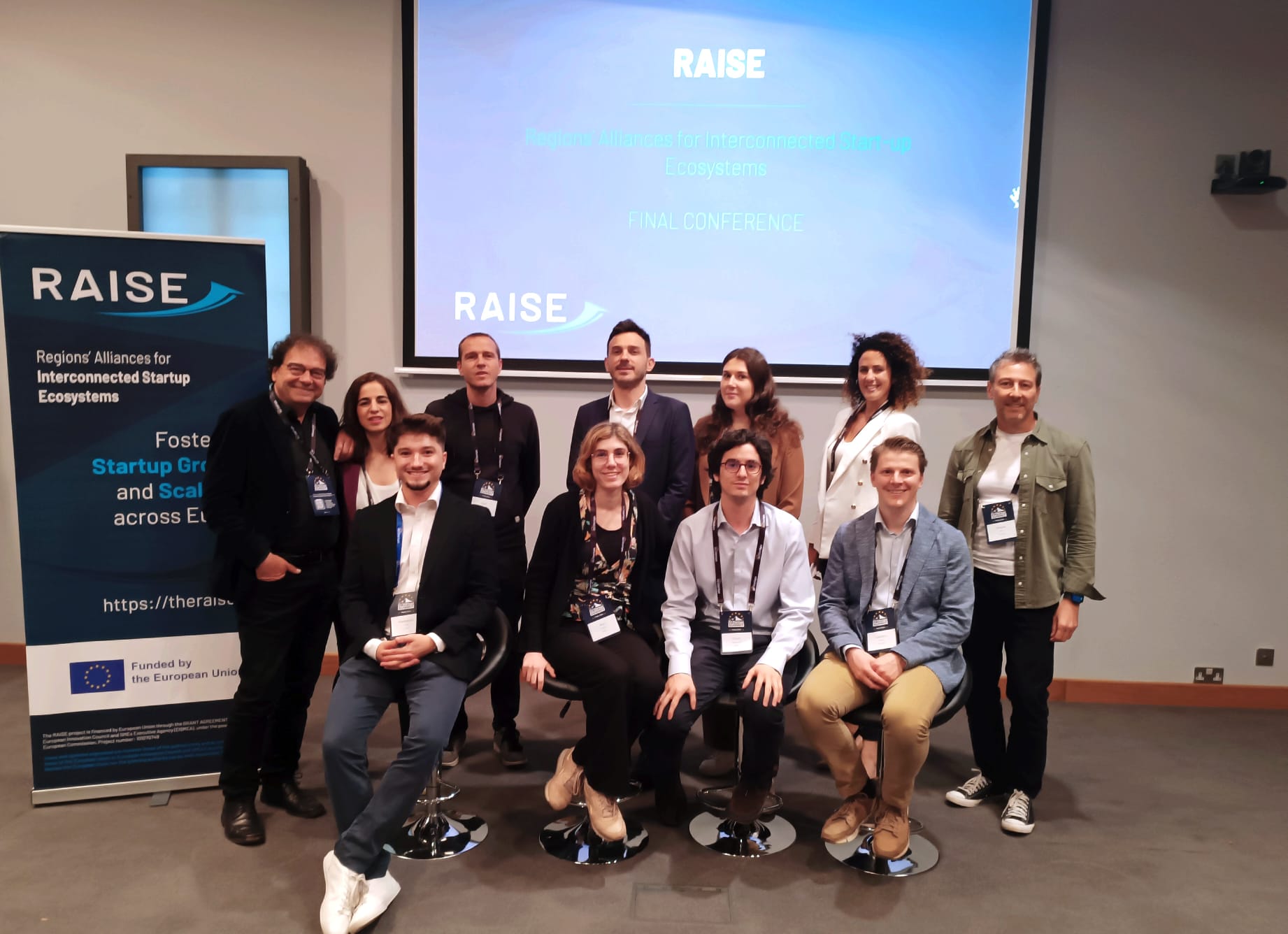In the past two years, the main goal of RAISE has been the development of a new and sustainable integrated support framework to foster start-up growth and scale-up across Europe in all its dimensions, from initial funding and research support to public incentives and internationalisation. This occupied the project consortium in the promotion of competitive business models, unconventional collaborations, and solutions across Europe, contributing to the establishment of a true EU startup ecosystem that linked multiple cities and regions together.
This ambitious mission was also the backbone of the final event, which took place on the 9th of May in Malta, in the framework of the 2024 edition of the EU Startups Summit 2024, in the majestic location of the Mediterranean Conference Centre, in historic Valletta. The EU Startups Summit represents since 2014 the perfect event for startups that are aiming to enter international markets, being an occasion for Europe’s hottest start-ups to showcase and learn from some of the continent’s most successful founders, innovators, and investors of our time.
RAISE was lucky enough to be one of the side events at this important conference, bringing together more than 60 participants in its morning session. Led by the coordinator SERN, the project’s final events featured a summary of the project activities, as well as an interesting panel discussion about challenges and opportunities in EU regions.
How to turn Europe into an interconnected startup ecosystem? Prof. Rudy Aernoudt, from the Ghent University and former senior economist from DG GROW, tried to reply to this question. 36% of the worldwide existing startups are EU-based, however, they only represent 14% of the world’s income. For this reason, there is a need for broad evidence-based policies to support the European startup ecosystem in today’s turbulent environment in order to overcome the main barriers. These were identified by the Professor as financial risk, lack of capital, social insecurity (unemployment, personal bankruptcy), poor quality of life, and entrepreneurial mindset. Broader evidence-based policies in Europe would respond to this by foreseeing business insolvency initiatives, facilitating access to unemployment allocations in case of failure, and stimulating entrepreneurship by making EU-company law and trans-border financing easier.
The keynote speech opened the way for the role of RAISE within the EU ecosystem in shaping Member States’ responsibility and influencing EU policymaking. EBAN showcased the Pilot Actions undertaken within the project ranging from business model refinement, partnership cultivation, access to funding and venture capital, and talent acquisition, to the promotion of women and rural entrepreneurship. EURADA introduced two interesting tools, designed to be used first-hand by start-ups, such as a guide on the use of Structural Funds in the various European regions, and an interactive map, illustrating which initiatives are currently financed by these funds and how they are implemented. SERN finally presented the Common Action Plan, marking in this way a significant moment, and synthesising the needs and expectations of the startup sector based on extensive research and guidance from the RAISE Regional Steering Group.
The RAISE session concluded with a dynamic panel discussion on start-up challenges and opportunities in Europe. Cristina Gallardo, our member from FUNDECYT, moderated an insightful dialogue among academia, regional representatives, and start-up funder. The keynote speaker Rudy Aernoudt was flanked by Greta Camilleri from Malta Enterprise - another EURADA member-, and Philippe Séjalon from INGAGE Institute.
As a first question, they tried to highlight their country/regional profiles concerning the start-up sector, highlighting drivers and barriers. On the one hand, Philippe brought the case of the INGAGE Institute, which is implementing innovative training for insurance companies, based in Switzerland. He explained how bilateral negotiations between the EU and Switzerland are happening in the region and he stressed the importance of opening this opportunity to start-ups. On the other hand, Greta presented the initiatives currently in place in Malta, the role covered by Malta Enterprise in offering support, and their future plans for improving the conditions when setting roots in Malta to eventually grow and thrive.
Following this, Rudy gave an overview of the main challenges to the internationalisation of local start-ups, clearly mentioning competition and quibbling bureaucracy as the main reasons. “My Swiss company, despite the current dialogue between Europe and Switzerland, is not fully benefitting from the EU market”, stated Philippe. In light of this, the last reflections concerned whether the cooperation between regions in the support of startups at the local level is always beneficial, and which kind of centralised adjustments should be considered.
The closure of RAISE brings with it two years of connections and networking, among partners as much as among dozens of start-ups operating on the European scene. The project’s efforts have nurtured startup growth and scale-up across Europe, marking a significant step towards a vibrant and resilient European startup ecosystem.
The slides used for the abovementioned presentations can be consulted on this page.
